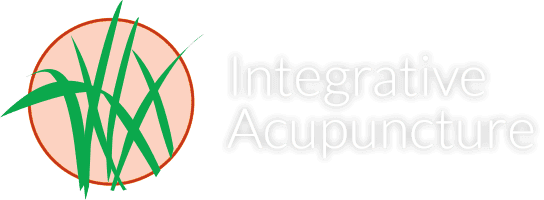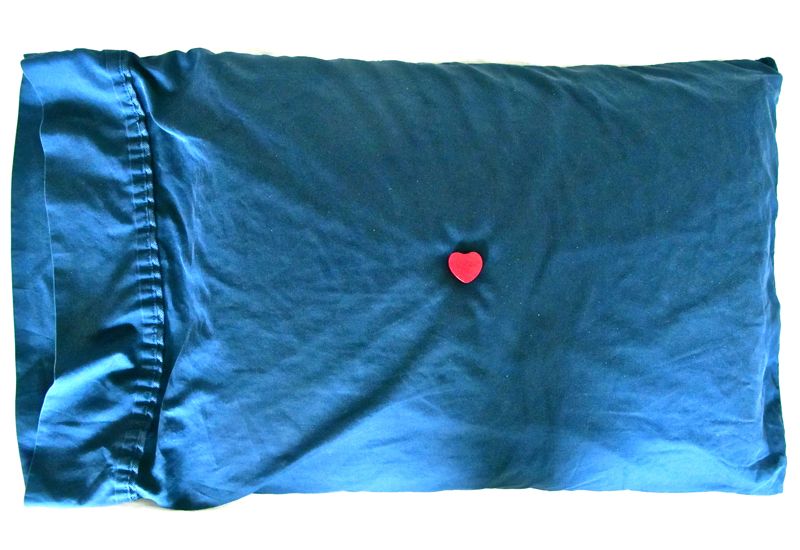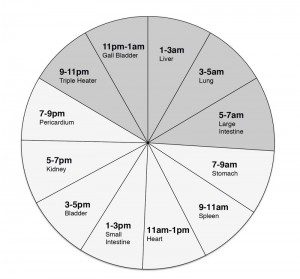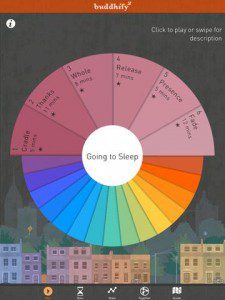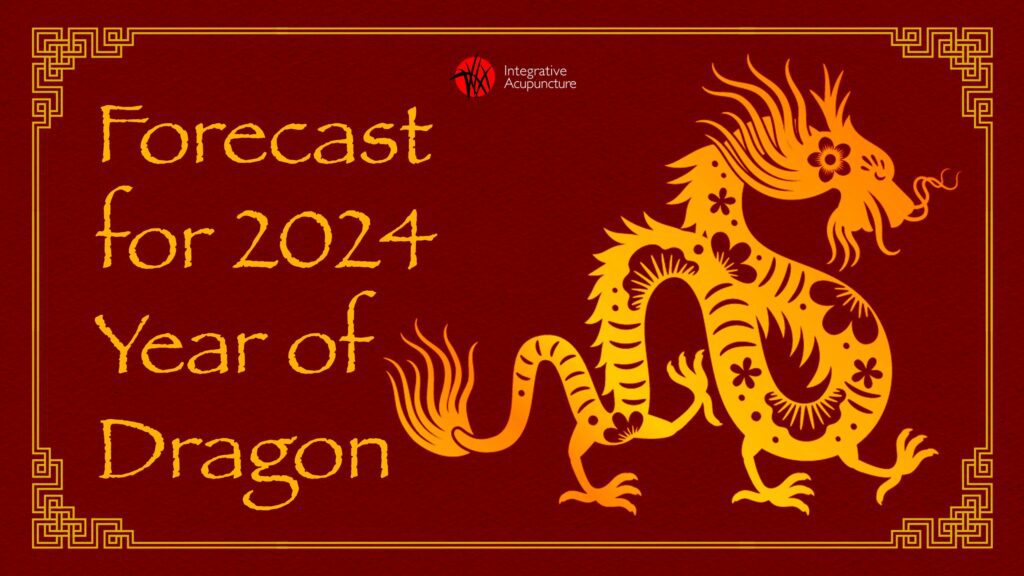From Our Friends at AcuTake
How to Get Rid of Insomnia: Self-Care Advice from Acupuncturists
By Sara Calabro
Insomnia is rampant. So many people are walking around exhausted, medication-dependent, or resigned to a sleepless existence. More and more—since an Ambien-induced night’s sleep just isn’t the same as a natural night’s sleep—people are turning to acupuncture and other non-drug therapies for insomnia.
Insomnia is one of the most common complaints seen by acupuncturists.
Regular acupuncture treatments can be extremely helpful for combatting insomnia. Acupuncturists customize treatments based on the specific brand of insomnia from which someone is suffering.
Some people have trouble falling asleep while others can’t stay asleep. While some are woken from frequent dreams, others can’t stop their minds from spinning. Some wake up every single night at 1:34am. Others sleep like babies until 3:37am.
What time do you wake up at night?
One helpful diagnostic tool used by acupuncturists for insomnia is the Chinese-medicine clock. It assigns a two-hour window to each of the body’s systems (see below).
This can be helpful in determining which system may be out of balance. For example, if you consistently wake up at 1:34am, an acupuncturist might suspect a Liver imbalance.
“For people who wake up between 1am and 3am, Liver qi stagnation tends to be the culprit,” says Monica Shields, an acupuncturist in Camden, Maine. “If this is your pattern, you can jumpstart the Liver system by starting the day with a cup of warm water with the juice of half a lemon squeezed into it. It’s also important to move the qi through exercise for at least 30-60 minutes every day. I also suggest taking 1-2 tablespoons of raw apple cider vinegar throughout the day.”
One more recommendation for Liver-type insomnia: Perform acupressure on Gall Bladder 34.
If you’re up every night at 3:37am, Lung could be the issue.
“This is the time the Lungs are supposed to help anchor your spirit and allow you to rest,” says acupuncturist Catherine Lumenello of Newtown, Massachusetts. “The Lungs are easily injured by dryness, which could be due to speaking too much at work, forced-air heating and cooling, or living in an arid climate. The Lungs respond quickly to apples and pears, which help to naturally restore the moisture balance for the respiratory tract. If you’re waking between 3am and 5am, grab a glass of apple or pear juice (or cider) during the day, and have an extra glass if you’re up at night. It will help replenish the Lungs and get you back to sleep.”
Another recommendation for Lung-related insomnia: Perform acupressure on Lung 7.
You can use the Chinese-medicine clock to get clues about which of your systems are out of balance and causing insomnia.
Here’s why you can’t fall asleep
If you’re having a hard time falling asleep—opposed to waking in the middle of the night—it’s usually an indicator of one of two things: Either your Gall Bladder won’t calm down, or you’re dealing with Heart qi deficiency.
Stressed out Gall Bladder
Gall Bladder energy is strongest from 11pm-1am, so if you can’t fall asleep until 1am, it could be because your Gall Bladder system is all amped up.
“The Gall Bladder is often impacted by stress, so a good long-term plan for dealing with insomnia is to reduce your stress,” says Lumenello.
Since that’s easier said than done, a more immediate solution is to massage the sides of your head, an area were the Gall Bladder channel runs. “Scrub the temporal region of the head—right above and behind the ears, within the hairline—followed by rubbing or squeezing the tops of your shoulders,” says Lumenello. “This can help clear some of the energy away from the mind so that you can rest.”
Acupressure on Gall Bladder 34 is also helpful for Gall Bladder-type insomnia.
Heart qi deficiency
The inability to fall asleep due to Heart qi deficiency usually involves anxiety.
“In these cases, stress may not be the underlying issue,” says Lumenello. “It is more likely to be general overwhelm from too much happening in our lives. Anxiety with insomnia is a great indicator that it is time for a meditation practice like prayer, yoga, tai chi, or qigong—anything to help calm your mind and give you a break from all that is happening.”
For her patients with insomnia of the Heart qi deficiency kind, Shields recommends, “shutting down all devices, eliminating the glow of LED lights from the room, light reading, and perhaps drinking a cup of chamomile tea before turning off the lights.”
15 more DIY techniques for getting rid of insomnia
Visiting an acupuncturist is a great way to start understanding the imbalances that may be causing your insomnia. Once you have a better sense of what type of insomnia you’re dealing with, you can choose more targeted techniques for addressing it. If you need an acupuncturist, find one here.
In the meantime, here are 15 more self-care techniques for insomnia that you can do on your own, for free, whenever you please.
Draw circles in the sand
As an acupuncturist and hypnotherapist, Wayland, Massachusetts-based Marisa Fanelli treats a lot of insomnia patients. Her cure? She has them draw mental circles in the sand.
“I have my insomnia patients imagine themselves on a beach, drawing a circle in the sand,” says Fanelli. “After they imagine drawing this circle, I have them visualize drawing the number 1 in the circle. Then I tell them to imagine erasing that number, just wiping it away—and as they do this, they feel themselves relaxing twice as deeply. After the circle is empty, they draw the number 2 in the circle, then erase it, again relaxing twice as deeply. There is no ultimate goal, just the drawing and erasing of numbers until they drift into sleep. For many people—including myself—this works like a charm!”
Break the no-screen rule for meditation apps
buddhifyMost people know by now that staying away from screens—TVs, laptops, mobile phones—is a good idea when you’re winding down for bedtime. But San Francisco acupuncturist Denise Cicuto allows her insomnia patients an exception: Buddhify, a meditation app.
“There are great simple, short meditations on Buddhify that really help,” says Cicuto, who also recommends the Yoga Nidra for Insomnia meditation on this CD.
I personally break the no-screens-in-bed rule for a meditation app as well. I use Headspace.
Imagine your happy place
To help take control of the wandering mind that keeps so many of us up at night, acupuncturist Kerry Jenni of Montpelier and Williston, Vermont recommends imagining your happy place.
“Let’s say it’s a beach,” says Jenni. “Engage each of your senses into that place. What does the air taste like? The sound of each wave crashing? The sight of every bubble on the wave? The feel of each grain of sand between your toes? The more details the better. Before you know it, you’ll be drifting off to sleep with the lullaby of waves.”
Eat protein before bed
For people who can fall asleep but have trouble staying asleep, Jacksonville, Florida acupuncturist Kendra Lay recommends protein.
“Waking up is often caused by a blood-sugar drop in the wee hours of the morning,” says Lay. “You can prevent it by cutting down on sugar and refined carbohydrates throughout the day, and including protein and healthy fats at each meal. As a bonus, have a high-protein snack, such as an egg or a small handful of nuts, one hour before bed.”
Drink more water
Stacey Donelson, an acupuncturist from Longmont, Colorado, tells all her insomnia patients to drink more water.
“I took a class from Dr. Allison Harvey, director of the University of Berkeley Sleep Clinic, and her number-one suggestion was to drink more water,” says Donelson. “Most of us don’t drink enough water and we are woken during the night due to dehydration. Many of my insomnia patients heal themselves just by increasing the amount of water they drink during the day.”
Take a magnesium supplement
Magnesium helps relax the muscles and the nervous system, so adding a supplement can be helpful for some forms of insomnia.
Malinda Sanducci, an acupuncturist in Kingston, New York, recommends “a chelated buffered type of magnesium supplement so that there is optimal absorption and less intestinal upset.” She says, “It is relaxing and can help with sleep, especially if taken before bed.”
If supplements aren’t your thing, many acupuncturists recommend that insomnia patients try taking baths with epsom salt, which contains magnesium.
Use Valerian
Sophie Rhee, an acupuncturist in Los Angeles, recommends that her insomnia patients take Valerian, an herb commonly prescribed for sleep. It’s available as a supplement and in tea form.
“Valerian relaxes the central nervous system and the smooth muscle, so it helps support restful sleep,” says Rhee. “Valerian also acts as an anti-spasmodic, so it helps with cramps due to nervousness, menstruation, migraine, and rheumatic pain. It helps stabilize people who have emotional stress, too. If you constantly wake up during the night, drink a valerian tea before bed.”
Write it down
If you’re one of the insomniacs whose spinning mind keeps them awake, try keeping a notepad by your bed.
“If you wake up and your mind goes to worrying or planning, turn on a dim light and write down whatever is on your mind,” says Michelle Gellis, an acupuncturist in Fulton, Maryland.
New York City acupuncturist Rae Ritke gives her insomnia patients a different writing exercise: “Before bed, make a mental note of things you are grateful for that day. It cuts the mental ties with continual thinking that can sometimes keep us up. Just keep thinking of the things you are grateful for until you get sleepy.”
Massage your head
Christina Morris, an acupuncturist in Brooklyn, New York, recommends giving yourself a little head and face massage before bed.
“Start on the scalp and work behind the ears, then the forehead, around the eyes, over the jaw and cheeks and then the chin,” she says. “Next, massage the ears as if you are rubbing a coin between your thumb and index finger. This helps relax the head and face muscles in preparation for a good night’s sleep.”
Hit the bottom of your feet
Kidney 1 is an acupuncture point located on the bottom of the foot (learn more about the point here). An acupuncture technique for addressing insomnia is to hit (lightly, with your fist) or rub the point repeatedly before bed.
Acupuncturist Randy Davis of Corvallis, Oregon recommends doing it 100 times on each foot about one hour before bed. “It helps to draw the Yang energy down, out of the head to the most Yin point on the body,” says Davis.
San Francisco acupuncturist Eric Kerr demonstrates a slightly different version of this technique in the video below.
Soak your feet
David Bonilla, an acupuncturist in Charlotte, North Carolina, recommends that insomnia patients do a hot foot soak at the end of the night. Here are Bonilla’s instructions:
1. Fill your bath tub, stock pot, or other container with hot water (make it hot-tub hot!)
2. Stick your feet in at least up to the upper ankle
3. Soak for 10-15 minutes
“It’s important to make this the last thing you do before bed,” says Bonilla. “I like to put the stock pot/bucket at the foot of the bed, sit on the bed while my feet soak, have a towel ready to dry off, and then head straight to sleep. It works like a charm and is an essential part of our self-care routine for insomnia patients.”
Drink some walnuts
Yep, drink. Terry Chen, an acupuncturist in Eugene, Oregon, recommends grinding a handful of walnuts and mixing it with your favorite milk—almond, coconut, or whatever you prefer.
“Walnuts contain melatonin,” says Chen. “When used for occasional insomnia, I have found them to be of great benefit for myself and my patients.”
Belly breath with a stone
Acupuncturist Jeremy Cornish of Naperville, Illinois recommends belly breathing as a way to wind down and calm the mind before bed.
“My favorite way to practice belly breathing involves lying on your back with a large smooth rock on your abdomen,” says Cornish. “If you don’t have a heavy rock, a thick book will work as well. With deep inhalations, the abdomen will expand, and the rock will rise. As you exhale, allow the rock to sink back towards your spine. Focus your awareness on the sensations deep in the abdomen as the rhythm of your breath naturally deepens. It is not uncommon to fall asleep practicing this exercise, only to wake up in the morning and find you are sleeping next to a rock!”
Do nothing
Rebecca Sprintz, an acupuncturist in Winnepeg Canada, says sometimes the best cure for insomnia is allowing ourselves to do nothing.
“So many patients are distracted constantly throughout the day,” says Sprintz. “When they’re driving, they’re listening to music. When they come home, the TV is on. There’s always work to be done and life to live. Most people don’t give themselves the opportunity to digest everything that they’ve experienced throughout the day. If you don’t give your body and mind the opportunity stop and process, it seems to take it from you between 1am and 3am (Liver time). I suggest to my busy patients with insomnia that they spend 10 minutes a day doing nothing. Just lay on the ground with no stimulation and let your mind wander to anywhere it needs to be.”
Accept your sleeplessness
When all else fails, accept that you cannot sleep.
“Often times, patients get so worried about not being able to sleep that they get more stressed,” says acupuncturist Patricia Petersen of Vancouver, British Columbia. “Be okay with it if you cannot fall asleep—relax and surrender to the process. You can always catch a short nap or go to bed earlier the next day.”
There you have it! A boat load of tips and tricks for getting rid of insomnia. Try them out. Mix them up. See what works for you. Wishing you a restful and natural night’s sleep!

